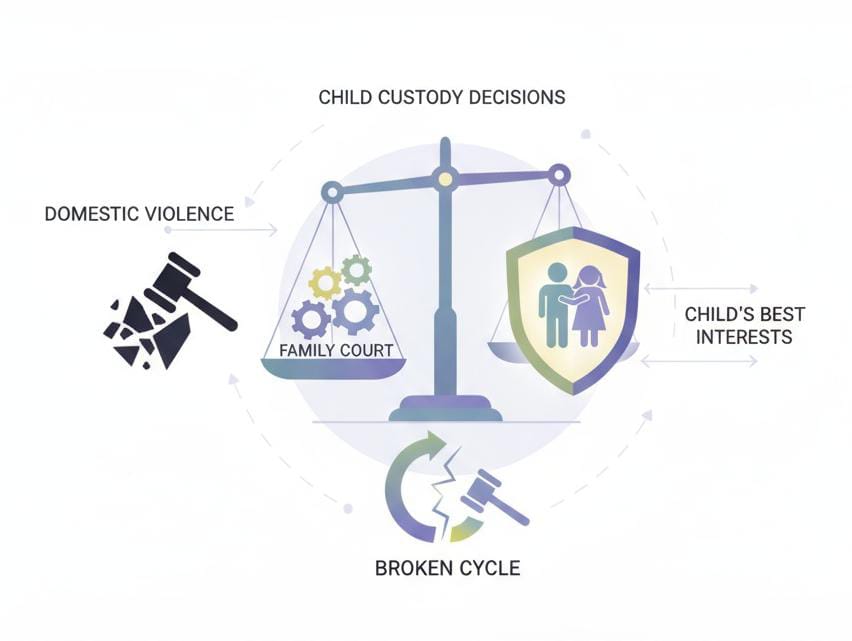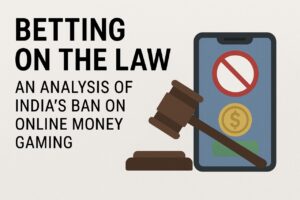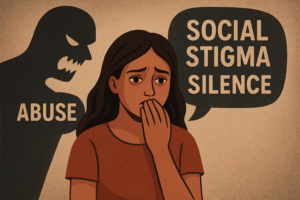The Silent Battle: Domestic Violence and Child Custody
Child custody disputes are invariably challenging, but when domestic violence is involved, the stakes become heartbreakingly higher. For survivors like Anna, every custody hearing is not just a legal proceeding but a gruelling emotional journey fraught with fear, hope, and an unyielding desire to protect their child.
Anna’s Story: A Mother’s Fight for Safety
Anna’s story began with love and promise. But as Nathan’s (Anna’s husband) controlling and abusive behaviour grew, her world darkened. When she discovered she was pregnant, the violence escalated words became threats, and threats became bruises. Fleeing with her newborn daughter, Anna sought safety in shelters, but safety was fragile. The pain of leaving was compounded by the uncertainty of custody battles, where Nathan’s right to see their child loomed over her like a shadow.
Courtrooms brought a new kind of fear. Anna had to recount her trauma to strangers the judge, lawyers, and social workers while witnessing Nathan’s attempts to manipulate the narrative. Each hearing tested her courage and resilience. Yet the law, through acts like India’s Protection of Women from Domestic Violence Act, 2005 (Section 21), offered a beacon. This law empowers magistrates to grant temporary custody to the non-abusive parent and regulate visitation rights sometimes even denying contact if the child’s wellbeing is at risk.
The Emotional and Psychological Toll
The turmoil extends beyond legal writings and court orders. Survivors endure emotional suffering that no file can capture the anxiety before each exchange, the nightmares their children face, the ever-present fear that the abuser’s control isn’t truly broken. According to research, children exposed to such environments often suffer behavioural changes and emotional trauma, with effects lasting a lifetime. For Anna’s daughter, the nightmare of seeing her mother hurt cast a long shadow over her innocence.
How Courts Decide: Safety Above All
In custody disputes involving domestic violence, courts hold the child’s welfare as paramount. They evaluate:
- Nature and frequency of abuse: Whether the violence was physical, emotional, or psychological, and whether it is ongoing.
- Impact on the child: Evidence of trauma, behavioural shifts, or fear.
- Proof: Police reports, medical records, protective orders, and witness testimonies.
Courts approach decisions with the assumption that a child’s best interests require protection from harm, even if the abuse wasn’t directly against the child, because witnessing violence can be equally damaging.
Legal Protections and Landmark Cases
India’s Section 21 of the Domestic Violence Act is a vital safeguard:
“The Magistrate may award temporary custody of children to the non-abusive parent and regulate or deny visitation rights if they harm the child’s welfare.”
Several landmark cases reinforce this principle:
- Roxann Sharma v. Arun Sharma 2015 8 SCC 318: Established that child welfare can override parental rights in abuse cases.
- Ashwini Pradhan v. Union of India (2018): Upheld the urgency of safeguarding children amid domestic violence.
- Geeta Vohra v. Nitin Chopra (2020): Affirmed courts can modify custody orders as new abuse evidence emerges.
Custody Arrangements in Cases of Domestic Violence
- Sole Custody
Frequently, custody is awarded solely to the non-abusive parent. This ensures that the abusive parent’s authority over the child is curtailed.
- Supervised Visitation
In less severe cases or where maintaining contact is judged beneficial courts may allow the abusive parent visitation only under professional supervision. This approach attempts to balance the child’s safety with the value of parental connection.
- No Visitation
In extreme cases where abuse poses an ongoing, severe risk, courts may deny the abusive parent any form of custody or visitation.
- Modification of Orders
Custody arrangements are not fixed. If new evidence of abuse emerges, courts can modify previous custody or visitation orders to strengthen protections for the child.
Strengthening Your Case: Evidence is Key
The success of custody decisions depends significantly on documented evidence:
- Police and medical reports recording abuse.
- Photographs of injuries.
- Witness statements by neighbours, teachers, or family.
- Digital proof like texts or voicemails threatening harm.
Keeping detailed records assures the court understands the full scope of danger, enabling protections for both the child and the survivor.
Anna’s journey remains unfinished. Like many, she continues to navigate a system that sometimes struggles to fully recognize the lived realities of abuse. But with laws fortifying her case, support from professionals, and a community that listens, she fights forward her heart fixed on raising her daughter in a safe, loving home.
Conclusion
Child custody disputes become especially challenging when domestic violence is involved, as they are not just about legal rights but about safety, healing, and a child’s future. Anna’s story is a reminder of the silent battles many survivors continue to fight seeking not only justice but also peace for themselves and their children. While laws like the Protection of Women from Domestic Violence Act, 2005 offer vital support, real change happens when courts, communities, and families place the child’s welfare at the heart of every decision.
In the end, custody decisions must reaffirm a simple truth: every child deserves a safe and loving environment, and every survivor deserves the chance to rebuild without fear.
-By Bhawna Kataria



